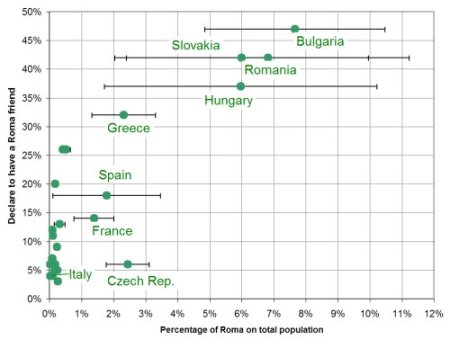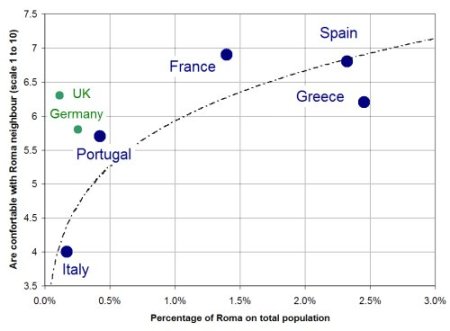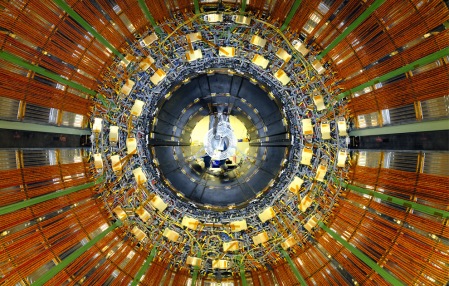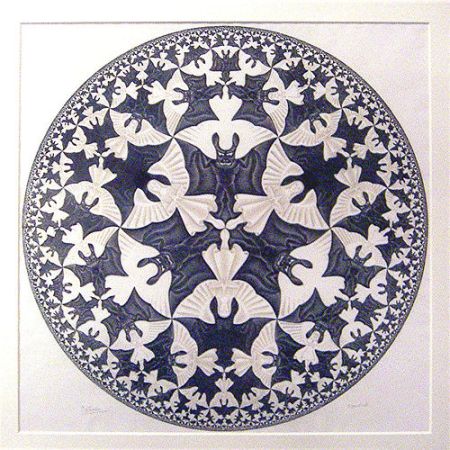
I started to suspect some time ago that in Italy there could be a problem with gypsies, or, to employ a more politically correct term, Roma people.
Not much of a news, you say? OK, right, sometimes I’m sort of slow in catching up with the current news.
However, I did a small research, and yes, I’m positive: we have a problem. Only, it’s a bit worse than I expected. The good news is that there is a solution. A rather simple one, in fact. And quite obvious. It somehow emerges naturally if only one cares to give a closer look at the issue, and it could be both effective and not too difficult to implement.
Bear with me, you won’t be disappointed. I hope. Most likely you would be surprised.
It all started last week when I come upon a mention in an article on Repubblica of a recent survey put in place by the European commission about discrimination and inequality in Europe. Repubblica reported that Italy resulted the EU country with the highest dislike for Roma. Of course, the few random percentages mentioned in the newspaper couldn’t possibly give a comprehensible view of the situation. I was intrigued however by the fact that France was mentioned as much more tolerant than Italy. I live in France, and I know that Roma are much more numerous here than in my country of origin. I resolved I would check the numbers some other time.
Well, I have found some time now, so I retrieved the original report and I looked for Rom population estimates in Wikipedia, with the aim to check for correlations.
The survey, for the part of interest, involved two questions, put to population samples across EU countries:
1) How comfortable would you feel in having a Rom as a neighbour? (Scale from 1 tot 10, highest more comfortable.)
2) Do you have any Roma friend ?
I thus plotted the survey results against the percentage of Roma over the entire population of the different countries, and here are the results (including error bars for estimate uncertainties):

So, there is hardly any overall correlation between the number of Roma in a given country and how they are perceived. there. In Italy the Roma are only a tiny fraction of the total inhabitants (less than 0.2%), as in most of Europe, but all countries with similar low Rom densities are much more tolerant than Italy, and their score show a rather large spread. The western Europe countries with a relatively high Rom density are amongst the more tolerant, while east Europe countries, with the higher number of Roma, are slightly below average but show, interestingly enough, a positive trend (higher Rom density = high tolerance). Therefore, the claim that in Italy there is a reaction to the too high number of Roma starts to look a bit fishy. What’s so special about Italy, then? Somebody particularly malignant could be tempted to answer that Italy is the only EU country with a prime minister with a dominant position in the mass media and a very strong interest first in creating dissatisfaction with the previous government and then in distracting the public from more important issues (for which he has no clue about possible solutions). However we should dismiss here such hypothesis as unscientific, on the ground that it’s impossible to either prove it or disprove it in this context.
It’s however interesting to look at the plot below, dealing with the answers to the second question. of the survey It is not surprising that only four percent among Italians admit to have a Rom friend, since it’s so hard to find one at all. On the other hand, almost half of Bulgarians have friends among Roma. It looks like xenophobic reaction are damped by increased presence of minorities, thus more opportunities to meet and understand them.

Eventually, I find the last plot the more intriguing. I compare here the reaction to Rom neighbours among the countries supposedly closest to Italy for culture, social structure and standard of living. I include UK and Germany, the other larger western states, for comparison. It is very tempting to admit a trend towards higher acceptance in case of a stronger presence of Rom minorities.

The conclusion is blatantly obvious: Italians are not comfortable with Roma, because there are not enough Roma in Italy. An increase in their number would give Italians more chances to know them better and therefore be reassured.
So, if the present government really want to reduce social alarm caused by Roma people, it should first of all try to attract more of them. It may not solve completely the problem, since Italy looks like such an anomaly, but this simple study show that it can only improve it.
Unfortunately I suspect that, as is often the case for simple, logical solutions based on a scientifically sound analysis, the political power would gladly ignore such a suggestion. Pity for them us.











